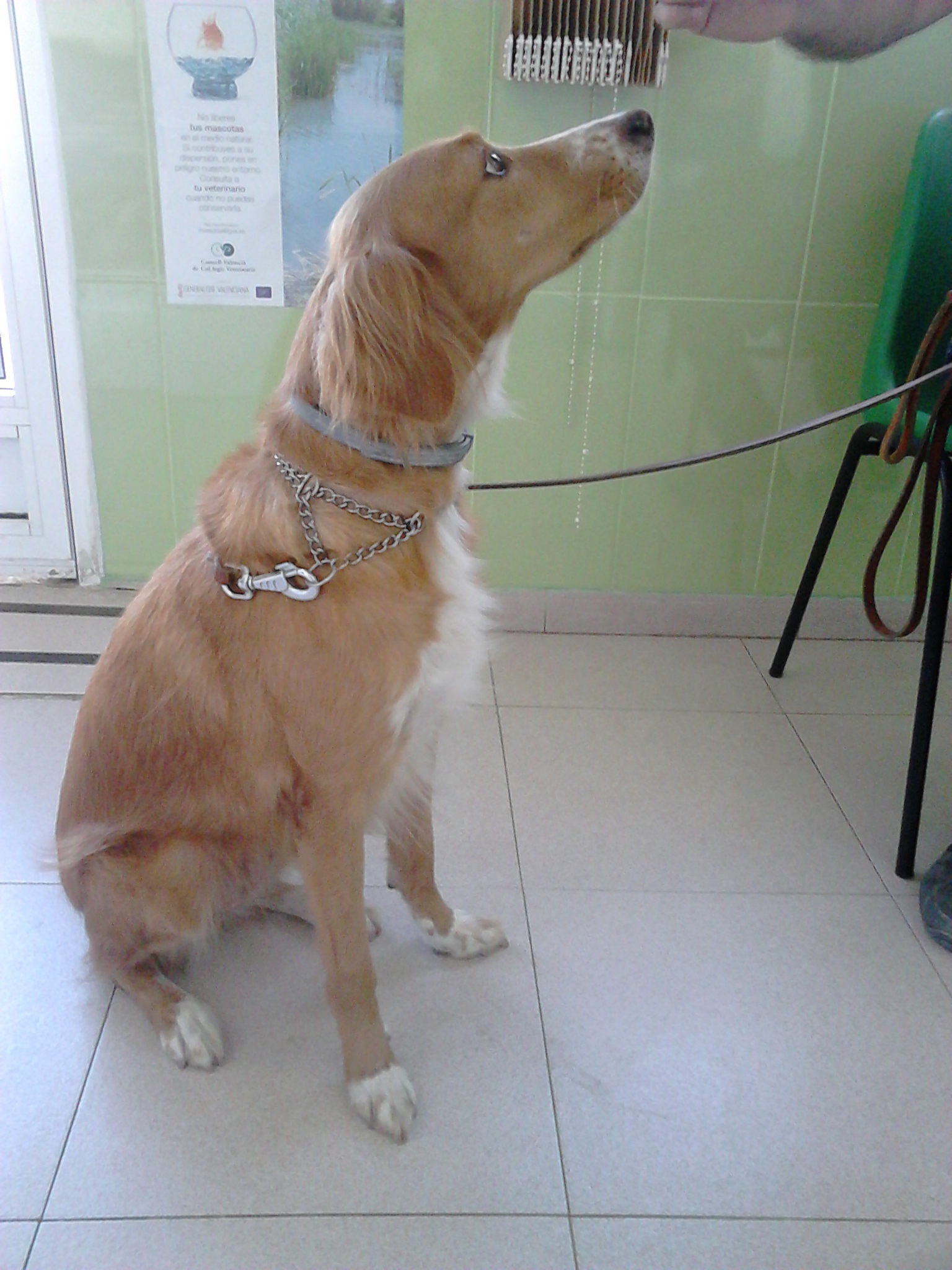THE STORY OF FOSCA
Fosca is a 7 year old Nova Scotia Retriever. When she was just 2 months old she was abandoned; they tied her to the fence of K-9 unit facilities at Valencia. She was rescued by Rober, a Policía Nacional officer who works at K-9 unit.
Fosca appeared to be in a good health condition, so Rober adopted her as a companion dog. But a short time later, considering Fosca’s remarkable attitude for learning, Rober trained her to be a police dog. The most important thing in these dogs is to have a good instinct of searching and to have a playful nature, because the training consists of searching and finding a group of substances (such as marijuana or money) when ordered, and having a prize which consists of playing games. So it becomes absolutely necessary for the police dog to “love” its job and to be in perfect condition to do it. Not every dog can be a police dog: some dogs are not interested on searching and finding, or maybe they are too nervous or shy to obey properly, or they are suffering a disease which makes them not to be in an optimal condition.
When a dog is valid for working as a police dog, it’s trained for finding two different kind of items maximum (such as drugs and money, or drugs and explosives). They are trained everyday for improving more and more and for being able to face successfully every new situation in order to become real specialists in their specific task. One single dog cannot be trained for finding everything; for this reason, every K-9 officer usually works with two dogs.
Fosca is specialized in finding hashish resin. Of course this means she is also able to find every object which is near to hashish. She is not trained to find money or weapons; that’s not her task. Despite this, she was able to find weapons during an inspection in a marble and granite manufacturing plant. The Police suspected there were hidden weapons and drugs. The owner of the plant recognized there were some weapons there, but assured the officers they wouldn’t be able to find them. Then the officers came in with the dogs, but they couldn’t find anything. Then, suddenly Fosca started to scratch a piece of wood on the floor. The officers lifted the piece of wood but there wasn’t anything under it. Fosca kept scratching and scratching the floor. Officer Rober thought Fosca was too tired and moved her outside in order to “give her an exit”. This implies the officer gives the dog something to “find”, because, if the animal is unable to find anything at all when it’s working, it gets frustrated, and if it gets frustrated too often, it stops being interested in its job. Minutes later, when Fosca was resting, the rest of the officers came out to congratulate her: after digging the place Fosca marked, they found a plastic container full of weapons. Why did Fosca find it? Just because thereo was also a small piece of hashish at the container. Fosca was only 8 months old.
Police dogs are never wrong: when they point a place it’s because there is (or there has been) what they are trained to look for. They are great professionals and real experts.
Fosca and Rober moved to other place, and she is no longer working as a police dog; she is happily retired and lives with Rober and his family, which also includes another companion dog.
Liliana Aldeguer Cerdán col 793
English translation by Sergio Reina Esteban col 747
Very special thanks to Police Officer Rober.



